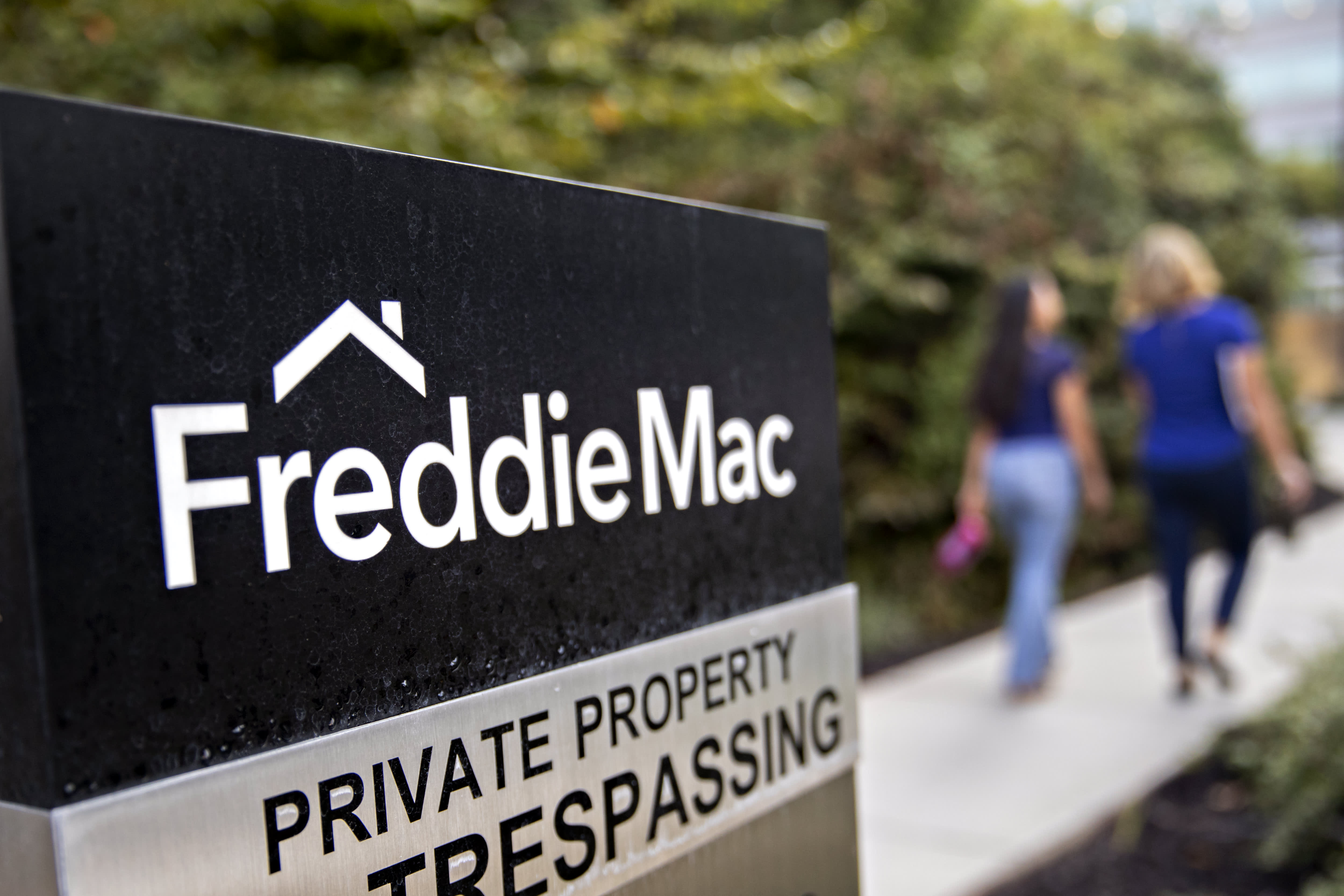Signage stands outside the Freddie Mac headquarters in McLean, Virginia, U.S., on Tuesday, Oct. 1, 2019.
Andrew Harrer | Bloomberg | Getty Images
The Federal Housing Finance Agency, regulator of Fannie Mae and Freddie Mac, announced that the two mortgage giants will now buy home loans that go into the government’s forbearance program just after they close.
Fannie and Freddie had not been doing that, and as a result, lending had tightened up dramatically.
“We are focused on keeping the mortgage market working for current and future homeowners during these challenging times,” FHFA Director Mark Calabria said in a release. “Purchases of these previously ineligible loans will help provide liquidity to mortgage markets and allow originators to keep lending.”
Mortgage lenders, both bank and non-bank, sell most of their loans to either Fannie Mae or Freddie Mac, known as government-sponsored enterprises, or GSEs. Or, if they are backed by the FHA, they are sold to Ginnie Mae. It can take a few weeks after a loan closes for it to be sold. When the government’s mortgage bailout started just over a month ago, some loans that had just closed but were not purchased yet went into forbearance.
The forbearance program allows borrowers with economic hardship due to Covid-19 to delay monthly payments for up to a year. Those payments must be made at a later date. The CARES Act, which was signed into law late last month, does not require that borrowers provide any documentation or proof of hardship.
More than 3 million loans are already in the forbearance program. Because Fannie and Freddie wouldn’t buy the loans that had just closed, credit tightened up dramatically, making it harder to get a new loan for all borrowers. Lenders were afraid any loans they made might go into forbearance before they were sold, leaving them on the hook, unable to sell them.
This announcement should loosen the market somewhat, although there are certain eligibility criteria and limits, according to FHFA:
- The mortgage loan must have closed on or after Feb. 1, 2020, and on or before May 31, 2020.
- The loan must be a mortgage purchase transaction or a no-cash-out refinance.
- The loan cannot be more than 30 days delinquent.
In addition, eligible loans will be assessed an additional loan-level price adjustment — 5% for first-time homebuyers and 7% for non-first-time buyers.
There is disagreement, however, on what these higher costs could do to mortgage rates. Some say they could cause mortgage rates to fall slightly, as the credit box opens up more. Others say some lenders will pass those costs on to borrowers in the form of higher rates.
“We welcome the change in policy that directs the GSEs to purchase most loans in forbearance,” said Bob Broeksmit, CEO of the Mortgage Bankers Association. “We [are] looking forward to working with FHFA and the GSEs to arrive at more appropriate pricing and broad coverage for all transaction types.”

